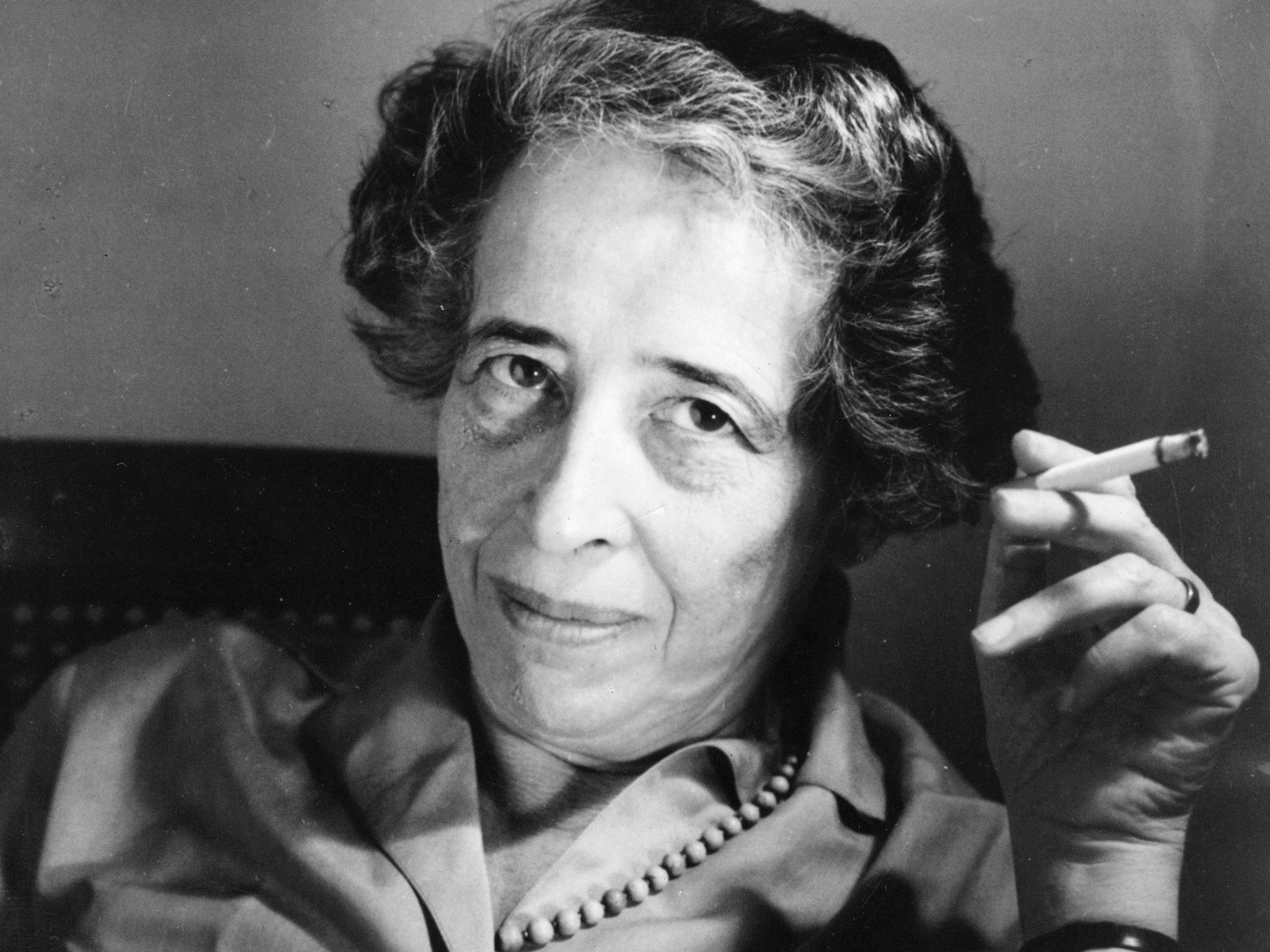On the banality of evil: Hannah Arendt, philosophy and Nazism
Hannah Arendt’s name will forever be associated with the disenchantment and de-romanticising of evil, writes Chris Horrie, and this summer sees the anniversary of two of her works

This summer marks respectively the 60th and 70th anniversaries of the two main works of the 20th century political philosopher Hannah Arendt. Although she is usually described as German Jewish, since she was born into a secular Jewish family in Hannover at the start of the 20th century, she described her nationality as “refugee”. In the age of industrial modernity the refugee had emerged as a “new type of person”, defined by the fate of being “placed in concentration camps by foes, and of being placed in internment camps by friends”, as she put it.
The first of these works is On the Origins of Totalitarianism, published in 1951, as an extension of a study of the history of anti-semitism which she had begun before the second world war. At the time the term ‘totalitarian’ was used fairly loosely to describe any sort of dictatorial regime. Arendt’s use of the term is more precise and more profound. Throughout history tyrants of one sort of another have sought to physically subdue or enslave populations. The essence of totalitarianism, as practised in both Nazi Germany and in the Soviet Union was to enslave the mind, to create perfectly obedient human robots or “marionettes” as Arendt described officials of the Nazi SS or the Soviet KGB, while deporting or murdering those who would not or could not conform (ethnic minorities, those stricken by conscience, dissidents, resisters, romantics and outsiders) on an industrial scale. Once the conformist majority had learned this lesson and the non-conforming minority eliminated, then a new golden age would arrive and last forever. Arendt was struck by the way in which many of the ‘operatives’ of totalitarian regimes believed themselves to be good and morally upright utopians, who had been working in the interests of humanity as a whole, including their victims.
Thus the second of Arendt’s works with an anniversary this summer is Eichmann in Jerusalem, which is an account of the trial of Adolf Eichmann, the Nazi official primarily responsible for organising the deportation of millions of Jews, Gypsies and others to the Auschwitz ‘death factory’ where they were murdered or worked to death. Eichmann had in fact escaped to Argentina after the war where he had been abducted by special forces deployed by the newly formed state of Israel and brought to face televised trial in Jerusalem.
Subscribe to Independent Premium to bookmark this article
Want to bookmark your favourite articles and stories to read or reference later? Start your Independent Premium subscription today.
Join our commenting forum
Join thought-provoking conversations, follow other Independent readers and see their replies